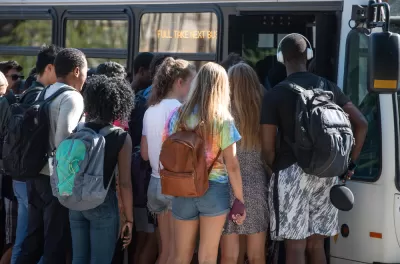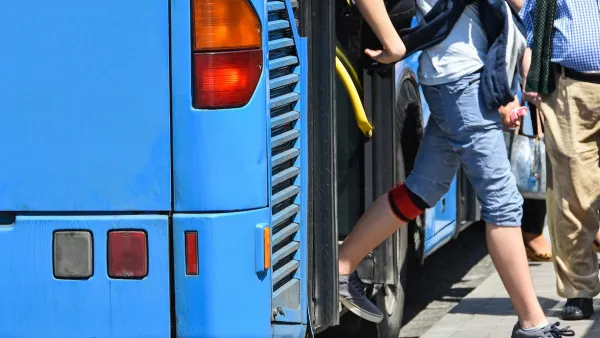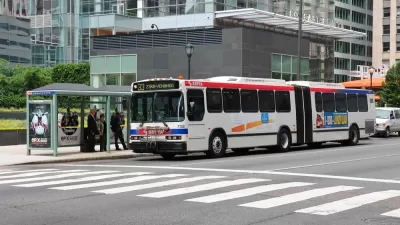Access to transportation is a major hurdle for many community college students, but local transit systems often fail to serve them.

Writing for WDET, Eli Newman reports on a new study from the Civic Mapping Initiative that reveals that 44 percent of Michigan’s community colleges are not within 4.5 miles of a bus stop or transit station. According to Bill Moses, managing director for the Kresge Foundation’s Education Program, “We found that for many low-income students, transit is one of the biggest barriers to actually going to college. It’s literally getting there.”
Newman notes that “The Civic Mapping Initiatives claims by extending bus lines or making other route adjustments, an additional 25% of community colleges could become accessible by public transit.”
Abigail Seldin, co-founder of the Civic Mapping Initiative, points out that distance to transit is just a starting point for determining true accessibility. “Access requires affordable fares, routes that work, stops where you want to go,” Seldin explains.
Seldin urges stronger collaboration between colleges and local and regional transit agencies. “Right now there’s tremendous recovery dollars around. There’s a focus on workforce attainment, and connectivity and public transit investment. If we want students to be able to get to school to get workforce training, they have to be able to actually set foot on the campus in many cases, and there’s not a better time for folks to come together to really work on this.”
FULL STORY: Survey: Most Michigan community colleges out of reach of public transit

Planetizen Federal Action Tracker
A weekly monitor of how Trump’s orders and actions are impacting planners and planning in America.

Congressman Proposes Bill to Rename DC Metro “Trump Train”
The Make Autorail Great Again Act would withhold federal funding to the system until the Washington Metropolitan Area Transit Authority (WMATA), rebrands as the Washington Metropolitan Authority for Greater Access (WMAGA).

The Simple Legislative Tool Transforming Vacant Downtowns
In California, Michigan and Georgia, an easy win is bringing dollars — and delight — back to city centers.

The States Losing Rural Delivery Rooms at an Alarming Pace
In some states, as few as 9% of rural hospitals still deliver babies. As a result, rising pre-term births, no adequate pre-term care and "harrowing" close calls are a growing reality.

The Small South Asian Republic Going all in on EVs
Thanks to one simple policy change less than five years ago, 65% of new cars in this Himalayan country are now electric.

DC Backpedals on Bike Lane Protection, Swaps Barriers for Paint
Citing aesthetic concerns, the city is removing the concrete barriers and flexposts that once separated Arizona Avenue cyclists from motor vehicles.
Urban Design for Planners 1: Software Tools
This six-course series explores essential urban design concepts using open source software and equips planners with the tools they need to participate fully in the urban design process.
Planning for Universal Design
Learn the tools for implementing Universal Design in planning regulations.
Smith Gee Studio
City of Charlotte
City of Camden Redevelopment Agency
City of Astoria
Transportation Research & Education Center (TREC) at Portland State University
US High Speed Rail Association
City of Camden Redevelopment Agency
Municipality of Princeton (NJ)





























